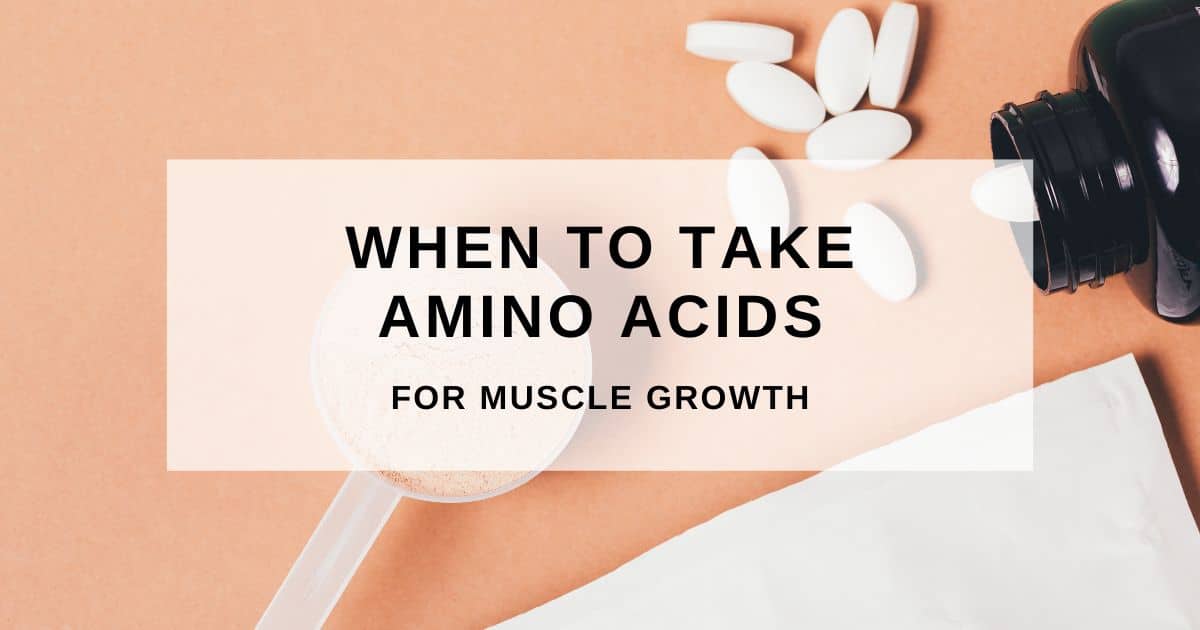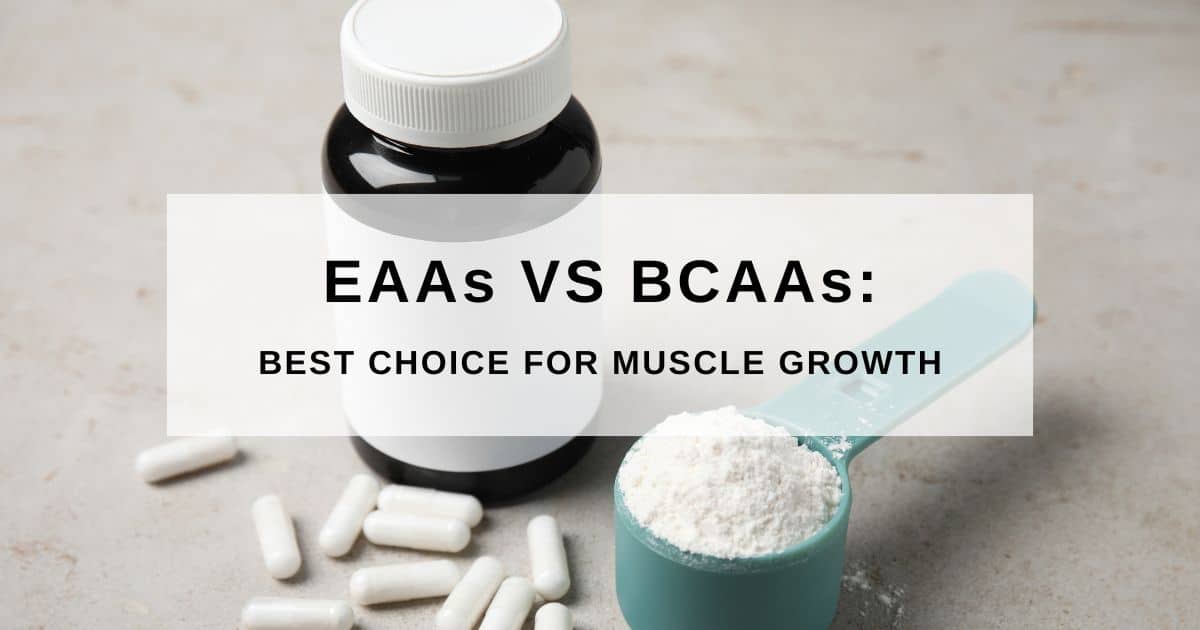Protein bars and shakes are highly popular amongst gym-goers, outdoor enthusiasts, and busy people who are away from their homes frequently. They can be a quick way to fuel your body and help meet your protein needs, which for most people, is around 1.2-2.0 g/kg body weight.
But which is better when comparing protein bars vs shakes?
Generally, protein bars offer greater convenience and satiety, while protein shakes offer greater versatility and can benefit people desiring muscle growth or weight loss or who are otherwise closely tracking their macros.
In this article, we break down the details and review the nutritional composition, ingredients, convenience, cost, taste, and variety to help you choose your ideal protein supplement.
What are protein bars?
Protein bars are a solid mass, often containing some combination of protein powder, egg whites, dried fruit, oats, quinoa, nuts, seeds, and sweeteners.
There are several varieties of bars utilizing either plant protein or animal protein, making it easier to find an option suitable to your lifestyle and preferences.
What are protein shakes?
Protein shakes include ready-made shakes and homemade shakes made with protein powder.
- Ready-made protein shakes are a blend of protein powder and a liquid (like water, milk, or coffee), sometimes with emulsifiers or oils to enhance the texture and consistency.
- Homemade protein shakes are a blend of protein powder and a liquid (like water, milk, juice, or coffee), sometimes with fruit, greens, nuts, seeds, or yogurt to provide additional carbohydrates and fat.
Ready-made shakes almost always contain sweeteners and flavorings, while protein powders are available in flavored, unflavored, sweetened, and unsweetened varieties.
Like protein bars, shakes also come in both plant-based and animal-based varieties to suit your preferences.
Factors to consider when choosing protein bars vs shakes
Here, we’ll review similarities and differences in nutritional composition, ingredients, convenience, cost, taste, and variety, so you can easily decide between protein shakes and protein bars as your ideal supplement.
Nutritional comparison
Here is a comparison of macronutrients per serving between protein bars vs. protein shakes.
Protein bars
- Non-vegan: 200-350 kcal | 20 g protein | 20-40 g carbs | 5-10 g fat
- Vegan: 200-350 kcal | 10 g protein | 20-40 g carbs | 5-10 g fat
Protein shakes
- Bottled shakes (12 oz): 140-170 kcal | 20-30 g protein | 4-8 g carbs | 2-5 g fat
- Whey protein powder (30 g): 100-130 kcal | 20-30 g protein | 0-4 g carbs | 0-2 g fat
- Vegan protein powder (30 g): 90-160 kcal | 15-25 g protein | 4-9 g carbs | 0-3 g fat
Additionally, some protein bars, shakes, and powders have added vitamins, minerals, and fiber to enhance the nutrient profile which can make them more suitable for an occasional meal replacement if desired.
Digestion & satiety
Protein bars tend to be more satiating due to their higher calorie, fat, and fiber content. Fat and fiber slow digestion, providing gradual delivery of energy to the body.
Protein shakes are often lower in calories, fat, and fiber, so they are digested faster and less filling.
Additionally, research shows that a solid high-protein meal leads to increased hunger suppression, less desire to eat, and less thirst than a liquified high-protein meal (1).
Common ingredients in protein bars & shakes
Some ingredients are used frequently to formulate protein supplements. Here, we’ve listed the protein sources, fiber sources, vitamins & minerals, sweeteners, gums, thickeners, and emulsifiers that are most prevalent in these products.
Protein
These are the most common protein sources:
- Whey protein concentrate, isolate, or hydrolysate
- Milk protein concentrate or isolate
- Casein
- Soy protein concentrate or isolate
- Pea protein
- Brown rice protein
- Hemp protein
- Egg whites
- Nuts & seeds
Fiber
Some protein bars and shakes contain fiber. Fiber has many important benefits including increasing satiety, promoting healthy gut function, stabilizing blood sugar, and assisting with removing excess cholesterol (2).
These are the most common fiber sources:
- Chicory root fiber
- Soluble tapioca fiber
- Soluble corn fiber
- Psyllium husk
- Inulin
- Fruit
- Nuts & seeds
- Oats
- Isomalto-oligosaccharides
Vitamins & minerals
Some protein supplements have added vitamins and minerals, though the amounts will vary. You can check the Nutrition Facts label or ingredients list to see what your supplement contains. Ready-made protein shakes are more likely to have fortification than powders and bars.
These are some common vitamins & minerals used for fortification:
- Vitamins: D, E, B1 (thiamin), B2 (riboflavin), B3 (niacin), B5 (pantothenic acid), B9 (folate)
- Minerals: calcium, copper, iron, magnesium, phosphorus, potassium, zinc
Sweeteners
Many protein supplements are sweetened with either artificial sweeteners or plant-derived sweeteners. They each taste a bit different and some may have unpleasant side effects, including GI upset.
These are the most common sweeteners:
- Sucralose
- Acesulfame potassium
- Sugar alcohols: erythritol, xylitol, maltitol, mannitol, sorbitol
- Stevia
- Monk fruit sweetener
- Natural sweeteners: honey, maple syrup, date syrup, brown rice syrup, cane sugar
- Fruit
Gums, thickeners, & emulsifiers
Thickeners are used to improve the taste, texture, stability, and shelf life of processed foods. Some gums, like xanthan and gellan, may contain allergens, like corn, soy, wheat, or dairy.
Some people also report gastric distress from consuming thickeners, including bloating, gas, and diarrhea (3). Other side effects include reduced absorption of minerals (4).
These are the most common thickening & emulsifying agents:
- Xanthan gum
- Gellan gum
- Guar gum
- Carrageenan
- Locust bean gum (or carob bean gum)
- Arabic gum
- Cellulose gum (or carboxymethylcellulose)
- Lecithin
- Oils, including soybean, canola, and sunflower
Convenience of protein bars vs shakes
Both protein bars and shakes can be convenient, but we will review some factors you may want to consider if convenience is important for you.
Protein bars
- Weigh less than shakes
- Most don’t require refrigeration
- Don’t require preparation
- Small & take up minimal space
- Easy to transport
- Can be taken on the plane with you
- Found in supermarkets, convenience stores, and online
Protein shakes
- Most ready-made shakes are shelf stable and don’t require refrigeration (though you may prefer them chilled)
- Ready-made shakes don’t require preparation
- Both ready-made and homemade shakes are easy to transport in a spill-proof bottle
- Pre-made shakes can’t be taken in a carry-on unless purchased or prepared after going through airport security
- Found in supermarkets and online, but may not be available in convenience stores
Cost of protein bars vs shakes
Here is a comparison of the cost per serving between protein bars vs. protein shakes. Bottled pre-made protein shakes are the most expensive, followed by protein bars, and finally protein powders. If you choose to add ingredients other than water to your protein powder shakes, the cost will be higher than what is listed.
Protein bars
- Non-vegan: $1.50-$2.50
- Vegan: $1.50-$2.50
Protein shakes
- Bottled shakes: $2.00-$2.50
- Whey protein powder: $1.20-$2.00
- Vegan protein powder: $1.20-$2.50
Taste & variety
Depending on the ingredients and formulation, some protein bars have an unpleasant texture, either chewy, hard, or sticky. Protein shakes can sometimes taste artificial or have a chalky texture.
However, there are so many brands available today that most people can find a product they like. There are even options to fit various lifestyle preferences and health needs, including gluten-free, vegan, paleo, keto, and allergen-free.

Are protein bars or shakes better for muscle growth?
If your primary goal is muscle growth, a slight calorie surplus with increased protein intake is ideal. If you have calorie needs over 2200 calories, both protein bars and shakes can likely fit easily into your diet plan.
If you have lower calorie needs, protein shakes may be a bit easier to fit into your diet plan since they are usually lower in calories than bars
For very high protein needs, protein shakes will be easier to meet your needs and can be helpful if you are having difficulty eating enough protein from food.
Another consideration is the leucine content. Leucine is an essential amino acid (also a branched-chain amino acid) that is most important for stimulating muscle protein synthesis. Choose bars or shakes that include whey, casein, milk, egg white, brown rice, pea, or soy protein as a main ingredient to ensure you are getting enough leucine.
Are protein bars or shakes better for weight loss?
Protein powder and some ready-made shakes are the most flexible for meeting your calorie and macronutrient goals to facilitate weight loss.
Losing weight requires a calorie deficit – protein powder & shakes tend to be lower in calories and higher in protein, making them preferable for weight loss.
Dietitian-recommended protein supplements
Here are our dietitian-approved protein powders, protein shakes, and protein bars that are made with whole food ingredients, easy to incorporate into most eating styles, and free of potentially harmful additives, artificial sweeteners, and many allergens.
Protein bars
- Transparent Labs UNCUT High Protein Energy Bars – Whey Protein
- Nutrition facts: 280-290 kcal | 14-16 g fat | 23-24 g carb | 3 g fiber | 16 g protein
- Price: $2.50/bar
- Bare Performance Nutrition Field Bar – Whey Protein
- Nutrition facts: 270-280 kcal | 16 g fat | 21-22 g carb | 2-3 g fiber | 16 g protein
- Price: $2.50/bar
- Onnit Protein Bars – Milk & Whey Protein
- Nutrition facts: 230-250 kcal | 7-9 g fat | 26-27 g carb | 10-11 g fiber | 15-16 g protein
- Price: $2.83-$3.30/bar
- Perfect Bar – Egg, Milk, & Rice Protein
- Nutrition facts: 310-350 kcal | 19-22 g fat | 24-27 g carb | 2-5 g fiber | 12-17 g protein
- Price: $3.63/bar
- Odyssey Whey-Based Bars – Milk & Whey Protein
- Nutrition facts: 200-220 kcal | 9-11 g fat | 22-23 g carb | 4-8 g fiber | 15-16 g protein
- Price: $2.75/bar
- Odyssey Plant-Based Bars – Pea & Nut Protein
- Nutrition facts: 190-210 kcal | 9-10 g fat | 23-25 g carb | 5-10 g fiber | 13 g protein
- Price: $2.75/bar
- ALOHA Plant-Based Protein Bars – Brown Rice, Nut, & Seed Protein
- Nutrition facts: 220-260 kcal | 9-13 g fat | 22-26 g carb | 6-10 g fiber | 14 g protein
- Price: $2.75/bar
- Bare Performance Nutrition Field Bar – Pea & Peanut Protein
- Nutrition facts: 270-280 kcal | 18-19 g fat | 23-24 g carb | 4-5 g fiber | 12 g protein
- Price: $2.50/bar
- GoMacro Macrobar – Brown Rice & Pea Protein
- Nutrition facts: 270-280 kcal | 9-12 g fat | 30-38 g carb | 2-3 g fiber | 10-12 g protein
- Price: $2.25-$3.00/bar
- Epic Provisions Meat Bar – Meat Protein
- Nutrition facts: 120-150 kcal | 4.5-10 g fat | 1-9 g carb | 0-3 g fiber | 10-12 g protein
- Price: $2.25-$3.00/bar
Protein shakes
Ready-made
- Iconic Protein Drinks – Milk Protein
- Nutrition facts: 140 kcal | 2.5-3 g fat | 8-9 g carb | 4 g fiber | 20 g protein
- Price: $2.63-$3.25/bottle
- Orgain Clean Protein Shake – Milk Protein
- Nutrition facts: 130 kcal | 2 g fat | 9-11 g carb | 1-2 g fiber | 20 g protein
- Price: $2.40-$2.67/bottle
- OWYN Protein Shakes – Pea & Pumpkin Seed Protein
- Nutrition facts: 170-180 kcal | 7 g fat | 8-11 g carb | 5-6 g fiber | 20 g protein
- Price: $2.62-$2.92/bottle
- ALOHA Protein Shakes – Pea & Brown Rice Protein
- Nutrition facts: 160-170 kcal | 5 g fat | 10-11 g carb | 3 g fiber | 18-20 g protein
- Price: $3.33/bottle
Protein powder
- Naked Nutrition Grass-fed Whey Protein
- Nutrition facts: 120-160 kcal | 2-3 g fat | 3-8 g carb | 0-1 g fiber | 25 g protein
- Price: $1.25-$1.60/serving
- Naked Nutrition Goat Whey Protein
- Nutrition facts: 110 kcal | 0.5 g fat | 2 g carb | 0 g fiber | 23 g protein
- Price: $2.33/serving
- Naked Nutrition Grass-fed Micellar Casein Protein
- Nutrition facts: 10 kcal | 0 g fat | 0 g carb | 0 g fiber | 26 g protein
- Price: $1.31-$1.67/serving
- Naked Nutrition Egg White Protein
- Nutrition facts: 110 kcal | 0 g fat | 2 g carb | < 1 g fiber | 25 g protein
- Price: $1.55/serving
- Naked Nutrition Egg, Whey & Casein Protein Blend
- Nutrition facts: 110 kcal | 1.5 g fat | 1 g carb | 0 g fiber | 25 g protein
- Price: $1.49-$1.69/serving
- Naked Nutrition Pea Protein (combine w/ brown rice protein for all essential amino acids)
- Nutrition facts: 120 kcal | 0.5 g fat | 2 g carb | 0 g fiber | 27 g protein
- Price: $0.76-$1.10/serving
- Naked Nutrition Organic Brown Rice Protein (combine w/ pea protein for all essential amino acids)
- Nutrition facts: 120 kcal | 0.5 g fat | 4 g carb | 1 g fiber | 25 g protein
- Price: $0.99-$1.47/serving
- Transparent Labs Rice & Pea Protein Blend
- Nutrition facts: 130 kcal | 2 g fat | 3 g carb | 1 g fiber | 24 g protein
- Price: $1.67/serving
Final thoughts
Homemade protein shakes, ready-made protein shakes, and protein bars may all have a place in your life, but they each have their pros and cons.
Protein powders & shakes are typically easier to include in your diet if you are trying to meet calorie and macro goals since they are lower in calories, higher in protein, and can be blended with other ingredients if desired.
Protein powders are optimal for strict dietary preferences, especially if you need to avoid certain ingredients or allergens.
Protein bars are highly convenient and portable, and with so many varieties, they can still fit easily into most diet plans.
We hope this breakdown of nutritional profile, effects on body composition, ingredients, allergens, convenience, and cost will help you make the best decision for your lifestyle, nutritional goals, and training regimen.
Want to save this article? Click here to get a PDF copy delivered to your inbox.
This page may contain affiliate links. If you choose to purchase after clicking a link, I may receive a commission at no extra cost to you.
Collette is a registered dietitian and has over a decade of experience working with athletes, children & adults on tube feeding, and people with chronic health conditions. She has been writing about food and nutrition since she was in high school and has a passion for sharing evidence-based information, especially on the topics of protein and the importance of maintaining muscle mass for healthy aging.




